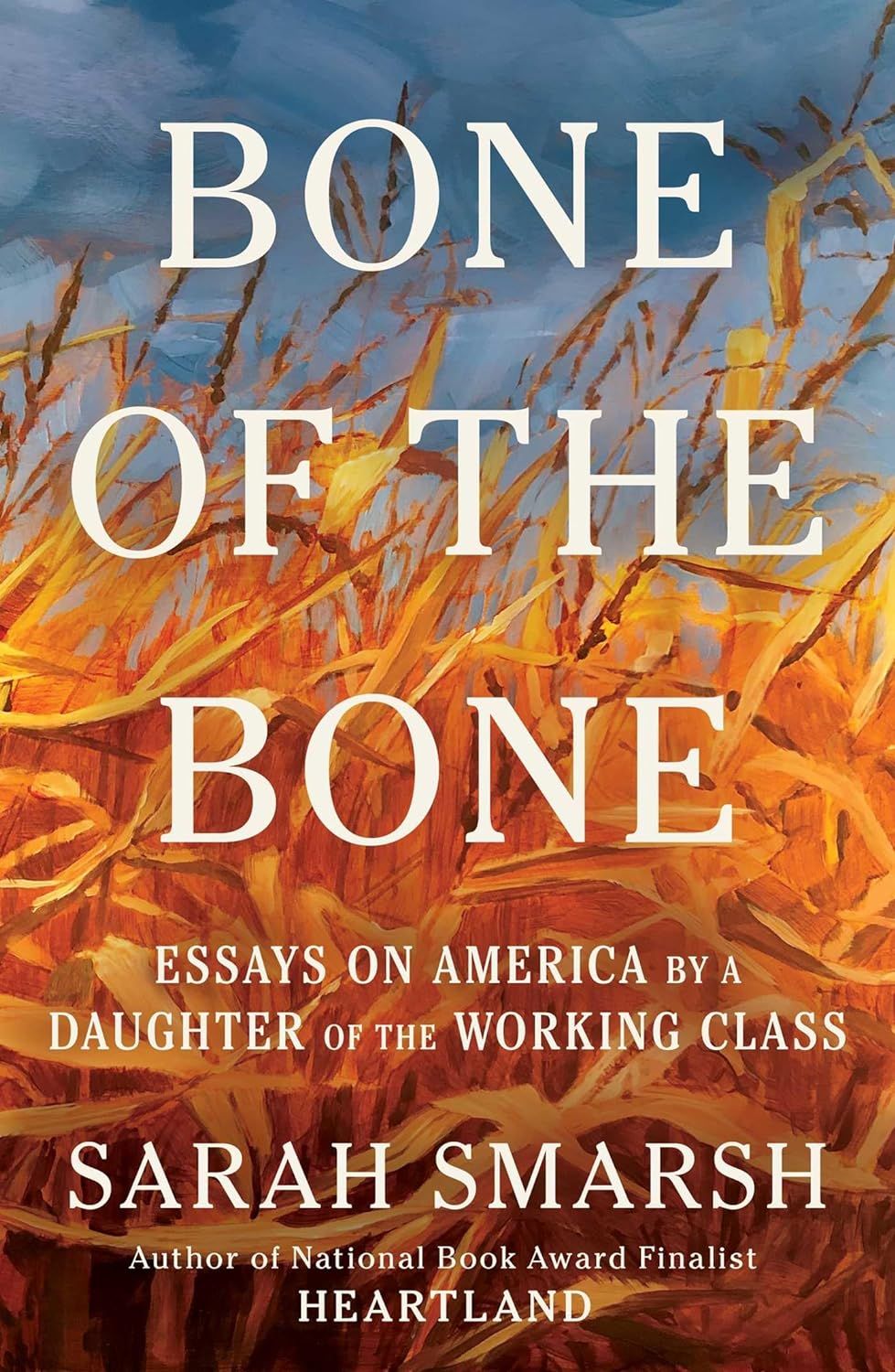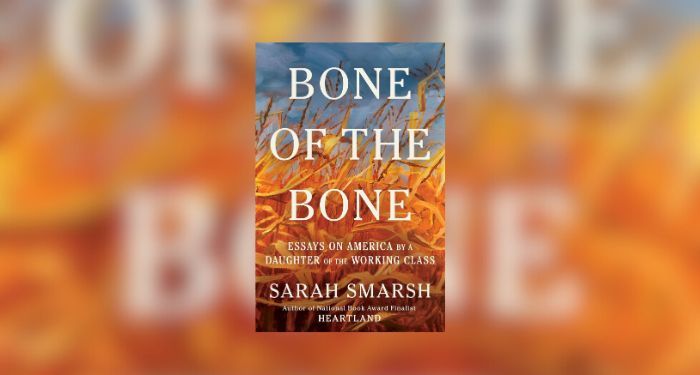

Bone of the Bone: Essays on America by a Daughter of the Working Class by Sarah Smarsh
Several years ago, I picked up Heartland by Sarah Smarsh. Her memoir follows Smarsh through her childhood as a girl growing up in a white, working class household in rural Kansas. I felt so seen by her story, the way she captures the cycles of poverty and struggles to break into the middle class with few connections and little financial support. And I wasn’t the only one who loved it. Heartland went on to become critically acclaimed and a finalist for the National Book Award.
Now, Smarsh is back with Bone of the Bone, a collection of her essays published from 2013-2024. Her essays examine a range of topics around the struggles of working class people, including the barriers to receiving healthcare, especially dental care. Her pieces push back against liberals scapegoating working class people as the sole reason that Hillary Clinton lost the 2016 presidential election. And she highlights the work of progressive, working-class Kansans, pushing back against stereotypes that all poor Kansans vote red.
In one essay, “In the Running,” Smarsh discusses a time in her life when she considered running for political office in Kansas. There’s this moment where she’s in D.C. talking to national Democratic officials about running in Kansas. She’s very aware that “red” states like Kansas don’t often receive much financial support from the party, and she begins asking herself questions like, “How on earth will she support herself and her campaign when she doesn’t have any personal wealth?” And Smarsh isn’t given many answers, so Smarsh starts looking for them herself. “In the Running” takes apart the many reasons why Democrats fail in places like Kansas and points out the many barriers facing people from working-class backgrounds who might want to run for office. She connects it all with scenes from her own life, tying in her stories from the many months she considered running for office and why, in the end, she chose not to run.
Smarsh’s writing is a light for working class people trying to make sense of the systemic barriers we face in America. But she never pretends to be “the” voice for the working class. She’s just one among many, doing her part to fight for a better future.

